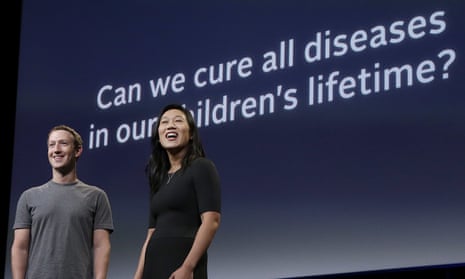Facebook is to begin removing false claims about Covid vaccines, the company has announced, as the UK prepares to roll out the Pfizer/BioNTech vaccine.
It is the strongest move yet by Facebook to prevent its platform from being used to promote anti-vaccination rhetoric.
Quick GuideHow does the Pfizer/BioNTech Covid-19 vaccine work?
Show
The Pfizer/BioNTech Covid jab is an mRNA vaccine. Essentially, mRNA is a molecule used by living cells to turn the gene sequences in DNA into the proteins that are the building blocks of all their fundamental structures. A segment of DNA gets copied (“transcribed”) into a piece of mRNA, which in turn gets “read” by the cell’s tools for synthesising proteins.
In the case of an mRNA vaccine, the virus’s mRNA is injected into the muscle, and our own cells then read it and synthesise the viral protein. The immune system reacts to these proteins – which can’t by themselves cause disease – just as if they’d been carried in on the whole virus. This generates a protective response that, studies suggest, lasts for some time.
The two first Covid-19 vaccines to announce phase 3 three trial results were mRNA-based. They were first off the blocks because, as soon as the genetic code of Sars-CoV-2 was known – it was published by the Chinese in January 2020 – companies that had been working on this technology were able to start producing the virus’s mRNA. Making conventional vaccines takes much longer.
Adam Finn, professor of paediatrics at the Bristol Children’s Vaccine Centre, University of Bristol
Under the new rules, content that makes false claims about Covid-19 vaccines will be removed from Facebook and Instagram once those claims have been debunked by public health experts. The company says it is an extension of an existing policy to remove false claims about Covid-19, which has been applied to 12m pieces of content since March.
“Given the recent news that Covid-19 vaccines will soon be rolling out around the world, over the coming weeks we will also start removing false claims about these vaccines that have been debunked by public health experts on Facebook and Instagram,” a company spokesperson said. “This is another way that we are applying our policy to remove misinformation about the virus that could lead to imminent physical harm.”
Such content “could include false claims about the safety, efficacy, ingredients or side effects of the vaccines”, Facebook said. These could be claims that coronavirus vaccines contain microchips, or conspiracy theories that are known to be false, such as the idea that specific populations are being used without their consent to test the vaccine’s safety.
“Since it’s early, and facts about Covid-19 vaccines will continue to evolve, we will regularly update the claims we remove based on guidance from public health authorities as they learn more.”
The policies are significantly stronger than Facebook’s typical rules against misinformation, under which false claims are marked as such and suppressed by the curation algorithms, but are not removed from Facebook and Instagram entirely. The distinction, the company said, was because misinformation about Covid and Covid vaccinations “could lead to imminent physical harm”.
As recently as 2018, Facebook allowed anti-vaccination content to spread unchecked on its platform. In July of that year, the company first introduced its policy of deleting misinformation that could lead to physical harm, and has applied it sparingly to content about vaccinations in the years since – focusing primarily on the most clearly false claims about specific vaccines and vaccination programmes.
Since then, it has steadily tightened the rules. In 2019, the company banned adverts that included misinformation about vaccines, in an effort to reduce the spread of “vaccine hoaxes”, and announced that it would be suppressing groups and pages that spread anti-vaccine misinformation.
It wasn’t until the pandemic that Facebook took further action. Last month, the company banned all adverts that discouraged people from getting vaccinated, a step up from simply banning misinformation in such adverts. Now, adverts on the platform will only be able to oppose vaccination if they do so from a political viewpoint – such as opposing politicians or laws which call for mandatory vaccination.
The topic has a personal connection for the Facebook founder and chief executive, Mark Zuckerberg. His philanthropic organisation, the Chan Zuckerberg Initiative, has embarked on a flagship effort to “cure all disease”, with a number of avenues of research being pursued, including a specific focus on vaccinations, through the Chan Zuckerberg Biohub.
